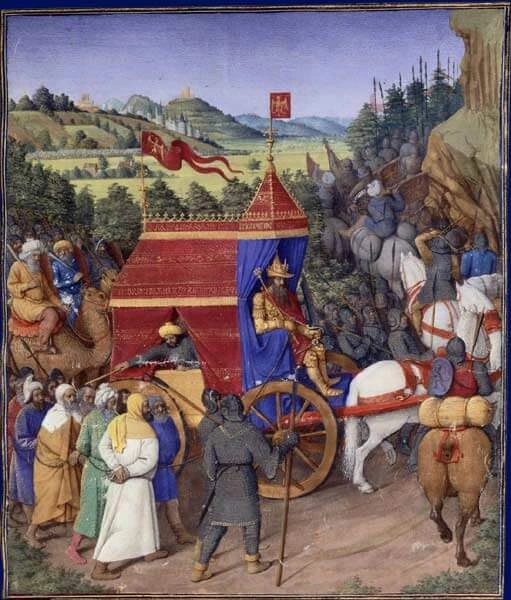1
Kuin Jeremia oli kaikki Herran heidän Jumalansa sanat kaikelle kansalle puhunut, niinkuin Herra heidän Jumalansa hänen oli lähettänyt sanomaan heille kaikki nämä sanat:
2
Sanoi Asaria Hosajan poika, ja Johanan Karean poika, ja kaikki ylpiät miehet Jeremialle ja puhuivat: sinä valehtelet, ei Herra meidän Jumalamme ole lähettänyt sinua eikä sanonut: ei teidän pidä menemän Egyptiin asumaan siellä;
3
Mutta Baruk Nerijan poika yllyttää sinua meitä vastaan, että me annettaisiin Kaldealaisten käsiin, tapettaa ja vietää Babeliin.
4
Näin ei tahtonut Johanan Karean poika, ja kaikki sodanpäämiehet, ja kaikki kansa totella Herran ääntä, että he olisivat pysyneet Juudan maalla.
5
Vaan Johanan Karean poika ja kaikki sodanpäämiehet ottivat tykönsä kaikki jääneet Juudasta, ne jotka kaikista kansoista sinne paenneet ja palanneet olivat asumaan Juudan maalla;
6
Miehet ja vaimot ja lapset, niin myös kuninkaan tyttäret, ja kaikki sielut, jotka Nebusaradan, huovinhaltia, Gedalian Ahikamin pojan, Saphanin pojan, haltuun oli jättänyt, ja propheta Jeremian ja Barukin Nerijan pojan.
7
Ja menivät Egyptin maalle, sillä ei he tahtoneet kuulla Herran ääntä, ja tulivat Tahpanhekseen.
8
Ja Herran sana tapahtui Jeremialle Tahpanheksessa ja sanoi:
9
Ota kätees suuret kivet, ja kaiva ne maahan tiilipätsiin, joka on Pharaon huoneen oven kohdalla Tahpanheksessa, niin että Juudan miehet sen näkevät.
10
Ja sano heille: näin sanoo Herra Zebaot, Israelin Jumala: katso, minä lähetän ja annan noutaa palveliani Nebukadnetsarin, Babelin kuninkaan, ja asetan hänen istuimensa näiden kivien päälle, jotka minä olen tähän maahan kaivanut; ja hän on paneva majansa sen päälle.
11
Ja hän on tuleva ja lyövä Egyptin maata; jotka kuolemaan (aiotut ovat), ne (joutuvat) kuolemaan, ja jotka vankiuteen, ne vankiuteen, ja jotka miekkaan, ne miekkaan.
12
Ja minä sytytän tulen epäjumalain huoneisiin Egyptissä, niin että hän polttaa ja vie heidät pois; ja hänen pitää puettaman itsensä Egyptin maahan, niinkuin paimen puettaa itsensä hameesensa, ja pitää menemän sieltä matkaansa rauhassa.
13
Ja hänen pitää murskaksi lyömän Betsemeksen patsaat Egyptissä, ja polttaman Egyptin epäjumalain huoneet tulella.







